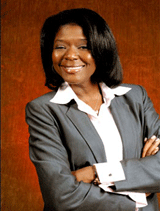|
From:TheBahamasWeekly.com Influential Voice - Kim Welcome
What we do have to keep in mind is
dialect is defined as
nonstandard spoken language, which
indicates it is not best suited for the workplace. For example if you
go to the beach in a pair of cut off shorts no one would think anything
of it, but it would be inappropriate in most work settings, even on
casual day. The same concept applies to our speech. You should not only
look the part, but you should sound the part.
Here are just a few tips for converting
informal to formal speech.
Use your tenses: He said instead of He say Use words appropriately: She’s here instead of She reach Use possessives where necessary: That’s Joan’s report instead of That’s Joan report or That’s Joan own Be aware of what is considered slang i.e.: He’s not in his office instead of He’s ain’ in his office Put is where it should be: Who is that? instead of Who that is?
Use the verb
to be correctly:
He’s usually in his office instead of
He is be in his office
If the use of formal speech doesn’t
come naturally, get a partner and resolve to use only formal speech
for four weeks until it becomes a habit. Informal speech in professional
situations may be perceived as being too relaxed or even inept. A powerful
way to enhance your professional image is to speak well.
Kim Welcome helps professionals
and companies to become more effective communicators through training
and coaching for more info www.influentialvoice.com.
|
 Many languages have two forms; the
standard and then a variation of colloquialism, dialect and slang which
is indigenous to specific regions and groups of people. In the Bahamas,
though we speak English, we have our own dialect and colloquialism that
we as a people recognize as part of our Bahamian culture. Our unique
accent and phrasing is what makes our speech colorful and expressive.
Dialect is an important part of culture; it connects us and creates
a feeling of familiarity.
Many languages have two forms; the
standard and then a variation of colloquialism, dialect and slang which
is indigenous to specific regions and groups of people. In the Bahamas,
though we speak English, we have our own dialect and colloquialism that
we as a people recognize as part of our Bahamian culture. Our unique
accent and phrasing is what makes our speech colorful and expressive.
Dialect is an important part of culture; it connects us and creates
a feeling of familiarity.